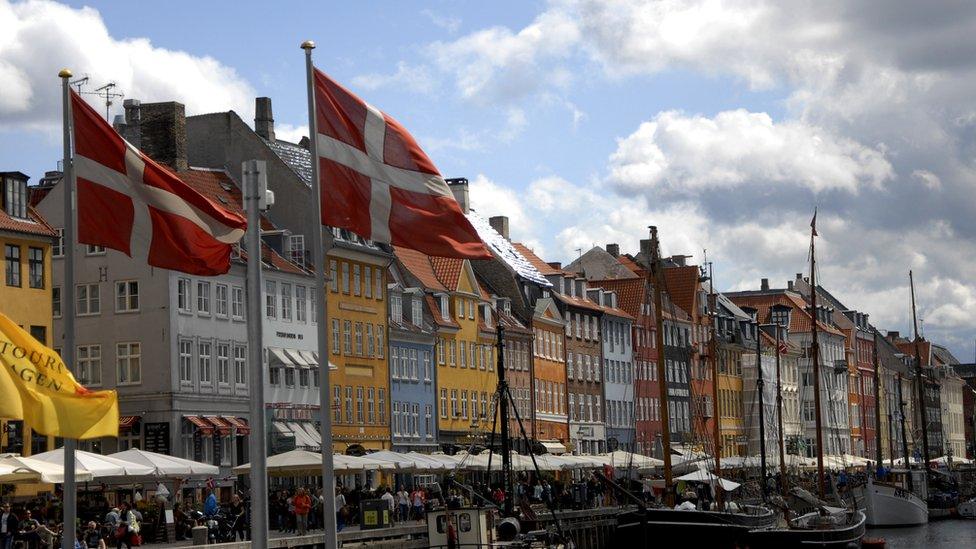Danish military intelligence head Lars Findsen suspended
- Published

Denmark's intelligence agency has been accused of spying on the country's citizens for years
Denmark's military intelligence head has been suspended after it was revealed the agency had broken laws and misled the intelligence watchdog.
Lars Findsen has been relieved from duty "for the time being" and two other employees have also been suspended.
The Danish Defence Intelligence Service is said to have been spying on Danish citizens over the past six years.
The investigation into the agency was launched after whistleblowers handed over information.
According to local media, the Defence Intelligence Service is accused of failing to investigate allegations of espionage in the armed services. It has also been accused of obtaining and passing on information about Danish citizens.
It is unclear if members of the public will ever be told if they were targeted and what information has been passed on.
The spy agency has been accused of hiding offences and failing to inform the watchdog that monitors the country's spy agencies.
Minister of Defence Trine Bramsen said an investigation will be launched into the case. In a statement on the ministry's website, she said the matter will be looked into with "the utmost seriousness".
"It is important for me to emphasise that the fight against the threats against Denmark must not stop while the investigation is carried out," she said.
Kasper Wester from Danish news site OLFI told the 大象传媒: "The supervisory agency suggests that Lars Findsen has played an active part in withholding information or even deliberately misinforming the supervisory agency.
"The fact that the head of the Danish Military Intelligence Service is a willing participant in circumventing the agency tasked with holding his own intelligence service legally accountable is mind-blowing and must be deeply concerning to the minister."
The investigation will aim to find out how this could have happened and how long it has been going on for, Mr Wester said.
Ms Bramsen also intends to look into establishing a whistleblower hotline.
- Published4 February 2019
- Published31 October 2018